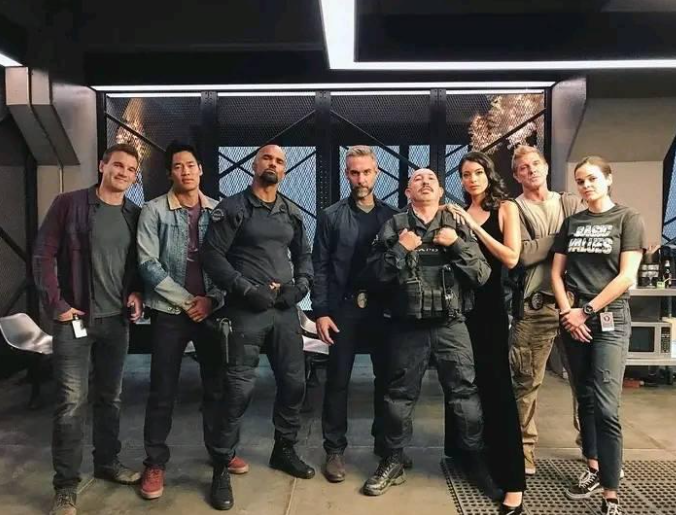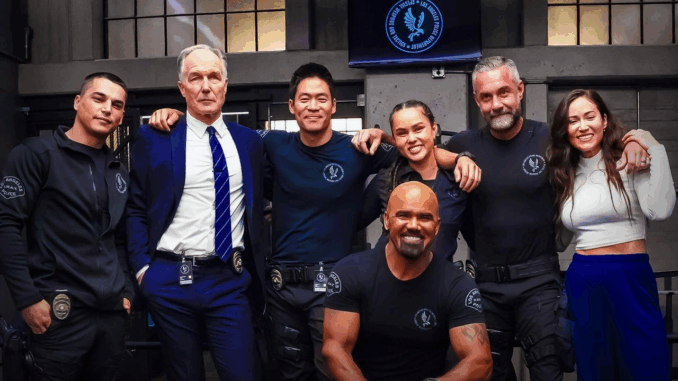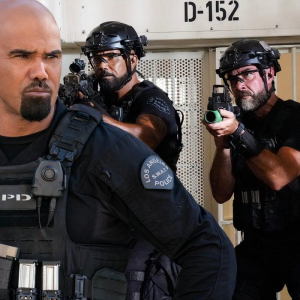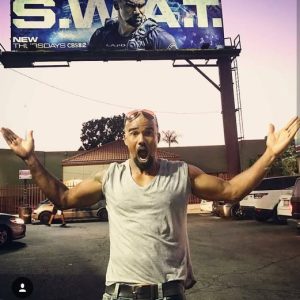The recent decision by CBS to conclude the acclaimed television series S.W.A.T. after its seventh season left a significant void for its dedicated fanbase. Yet, amidst the initial disappointment, a flicker of hope emerged with whispers of a potential spin-off, reportedly centered on Shemar Moore’s iconic character, Daniel “Hondo” Harrelson. This prospect, however, came with a jarring twist: the rumored continuation would conspicuously exclude the rest of the show’s beloved core team, notably omitting characters like Deacon, Tan, Luca, and Chris. In a recent interview, David Lim, who has portrayed Victor Tan since the show’s inaugural season, broke his silence on the matter, articulating sentiments that resonate deeply with many viewers and his fellow cast members.
Lim’s candor revealed the emotional fallout from the show’s unexpected cancellation and, more pointedly, his reaction to the proposed spin-off’s solitary direction. He expressed that hearing about a spin-off proceeding without the established ensemble “stung,” conveying a profound sense of being “brushed aside after seven seasons of building this together.” These powerful words underscore a deeper disillusionment, suggesting a fracture behind the scenes that most fans were unaware of. For Lim, S.W.A.T. transcended mere professional engagement; it fostered a genuine brotherhood. Over more than 130 episodes, he cultivated a strong on-screen chemistry with Moore, Jay Harrington (Deacon), Kenny Johnson (Luca), and other cast members, a dynamic that became central to the show’s appeal. The revelation that a continuation would sideline him and his castmates, therefore, hit with the force of a major narrative twist, personally impacting years of shared lives, friendships, growth, and collective storytelling. Lim lamented, “To be left out without a conversation? That hurt.”
The conceptualized spin-off reportedly aimed to transplant Hondo to a new city, tasking him with specialized federal cases alongside an entirely new team. This vision marked a stark departure from the familiar, tight-knit LAPD S.W.A.T. unit that audiences had embraced since 2017. Pitched as a darker, more serialized iteration of the franchise, it would retain Shemar Moore in the lead but sacrifice the ensemble cohesion that defined the original series. This proposed direction immediately ignited a wave of fan backlash, with loyalists vocalizing their discontent across social media platforms. Comments such as “No Tan? No Deacon? Not interested,” and “This feels like Hondo fan-fiction, not S.W.A.T.,” permeated online discussions, reflecting a clear sentiment that without the full cast, the show lacked its essence. Hashtags like BringBackTheTeam and ThisIsNotSWAT swiftly gained momentum, emphasizing the viewers’ attachment to the collective rather than just the lead.

David Lim handled his public commentary with discernible respect, making it clear his disappointment was not an attack on Shemar Moore, whom he expressed deep admiration for. “I love Shemar. I respect the hell out of him,” Lim stated, yet he couldn’t hide his concern that the proposed spin-off “doesn’t feel like the brotherhood we built on-screen. It feels like a studio decision that we weren’t part of.” This perspective clarifies that his grievance stems not from ego or professional jealousy, but from a perceived exclusion from a narrative and a family they all painstakingly built together. This situation is not entirely unprecedented in Hollywood, where ensemble casts are sometimes dismantled for spin-offs. History offers cautionary tales, from The Office’s failed Dwight spin-off, The Farm, to instances where NCIS: Los Angeles sidelined legacy characters, and various Grey’s Anatomy spin-offs struggled to replicate the original’s success without its core stars. Such moves often lead to fan detachment, diluted storytelling, and a failure to capitalize on the deep loyalty cultivated over years.
Lim’s candid remarks illuminated the lack of communication surrounding the spin-off, noting there was no prior warning, no invitation for the other cast members to continue in supporting capacities, and no explanation for their exclusion. Despite the evident hurt, Lim has maintained an open stance regarding a potential return, emphasizing his commitment to the show’s authentic spirit. “If they asked me back tomorrow, I’d show up. Not for a cameo, but because the story deserves to be told the right way—with all of us,” he affirmed, signaling his desire for a full, meaningful reunion. This vocal pushback from a key cast member, combined with overwhelming fan sentiment, appears to be influencing CBS and Sony. Rumors suggest the spin-off’s development is now either paused, undergoing significant creative revisions to potentially include more original cast members, or even entirely scrapped in favor of a true S.W.A.T. revival, perhaps in the form of a Season 9. While no official announcements have been made, the tension behind the scenes is clearly shaping the project’s uncertain future.
The collective demand from the fanbase remains unequivocal: restore the original squad. Viewers yearn for a proper Season 9 or a conclusive farewell arc that honors the characters and their interwoven stories. They firmly believe that attempting to rebrand S.W.A.T. without its established “soul”—its ensemble—would be a misstep. While Shemar Moore undeniably serves as the face of the franchise, the enduring appeal and heart of S.W.A.T. has always resided in the collective strength and camaraderie of its team. Shemar Moore himself has largely remained silent on the specific issue of his castmates’ exclusion. He has, however, actively advocated for the show’s continuation, openly pitching to major streamers like Netflix, Amazon, and Hulu, expressing a desire to “come play.” His public silence on Lim’s comments or the broader cast absence leaves room for speculation: could this be a strategic silence, anticipating a shift toward a more inclusive continuation?

If a genuine S.W.A.T. revival were to materialize with the full original cast, the narrative possibilities are rich and compelling. Audiences could witness Hondo evolve into higher leadership roles, explore Tan’s journey further as he grapples with his legacy and identity, see Luca take on a new role training recruits, and experience a well-deserved send-off for Deacon and other characters. Such a revival would provide essential closure to the intricate story arcs that have captivated viewers for seven seasons, offering the authentic conclusion fans desperately crave. David Lim’s candid remarks have truly peeled back the curtain on a reality many fans intuitively feared: S.W.A.T. wasn’t merely canceled; it experienced a significant fracture behind the scenes. The contentious decision to pursue a solo spin-off, sidelining the original team, has undeniably left both the cast and the dedicated fandom feeling overlooked. While Lim’s intention was clearly not to ignite a public feud, his powerful statements have undeniably sparked a critical dialogue about loyalty, respect, and the fundamental elements that enable a great television series to not just survive, but truly thrive. Ultimately, S.W.A.T. was never solely defined by Hondo; its undeniable strength and emotional resonance always stemmed from the extraordinary family that stood united behind him.





